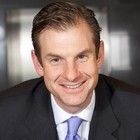Is 'data scientist' the next hot position in hotels/hospitality?
12 experts shared their view
There is so much data that a hotel has or can have access to... but in most cases, there's no one who understands how to translate these data into actionable insights on a hotel's current and future business. A vast array of external and publically available data can influence a hotel's performance, its offering and allows the hotel to be better at what it delivers to its guests and its shareholder. Years of underutilized data are sitting in PMS, POS, CRM, and other systems. More than ever hotels need to justify investments and budgets. So will a data scientist be able to give these answers?
What is Data Science in Hospitality
I fully agree that our industry is more and more driven by consumer behavior in a digital and data context. The hospitality sector has been slow to respond to the digital age which explains why other technology-driven companies have managed to dominate some of that space and changed the industry fundamentally. We need to move from a reactive to a proactive mode, not just to manage “in response” to new technology, but convert that influx of data into a strategic asset next to managing hotels and service experience we tend to focus on.
Most hospitality players lack that function and expertise and in our current times of great uncertainty and reset of consumer behavior that will accelerate during the pandemic, the need to use this data becomes paramount to pave the way for the recovery process.
Alone through a set of data is redundant. For it to yield knowledge, technology and human interaction are required. Further, even more critical are the skills of data interpretation into information, information into knowledge, and knowledge into business decisions. This is where a new hybrid function, the so-called data scientist, will start gaining credit.
The skillset these professionals will have to bring along will range from how to link the data between the various insular data pools that typically exist in hotel environments, interpret it to allow such professionals to identify trends and opportunities for optimization at any stage throughout the recovery window and well beyond.
The pace of change is increasing in the technological, socio-economic environment along with disruptions in guest behavior that by the time a data set becomes knowledge it is still relevant to guide business decisions into the future and ensuring that products can be scaled yet remain personalized. That new approach and function needs to interact with all stakeholders in a running hospitality business and may have a very good chance to develop from the rapid changes that are forming in recent times.


